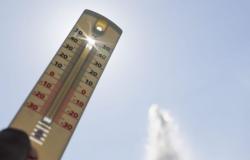Pseudoephedrine, contained in certain cold remedies, can in rare cases create cardiovascular complications.
Getty Images
The same range of medications, two countries, two practices: since last Wednesday, vasoconstrictors, these “magic” sprays, powders or tablets that unclog cold noses are no longer on sale over the counter in France – a prescription is essential. In Switzerland, on the contrary, no medical prescription is necessary.
Behind the French turn of the screw, a concern: pseudoephedrine. This component can, in rare cases, cause cardiac complications, heart attacks and strokes. The National Medicines Safety Agency (ANSM) has therefore decided, limiting access to decongestants.
In Switzerland, it is Swissmedic which authorizes marketing. It is based on clinical studies, she explains. Then, if it observes discrepancies and possible adverse effects over time, it makes adjustments – “simple (e.g. adaptation of information intended for patients)” or “more serious (e.g. ordered withdrawal of drugs)”.
“New risks identified”
For pseudoephedrine, Swissmedic changed its position in April: no ban, but the obligation to add “new identified risks” to the drug leaflets: the occurrence of posterior reversible encephalopathy syndromes (PRES, increase) and reversible cerebral vasoconstriction (SVCR), which notably causes acute headaches.
No deaths reported
These conditions “can be accompanied by a reduction in blood supply to the brain and in some cases lead to serious and life-threatening complications.” Swissmedic notes that a “small number of cases” have been reported. No deaths have been reported, but these “new risks” must be considered “in light of the overall safety profile of pseudoephedrine, which already includes other ischemic events (editor’s note: linked to obstruction of a blood vessel) cardiovascular and cerebrovascular”.
Hypertension, kidney disease: danger!
So, are these cold medicines dangerous? Swissmedic “cannot and must not have an explicit position” on this or that remedy. But it states that they “should not be used in patients with severe hypertension or severe kidney disease.” Christophe Berger, president of the Vaud pharmacy society, adds pregnant women.
He therefore thinks that in the long term, “we will go in the direction of France”: the balance between benefits and risks is “more and more unfavorable, while it is only a question of calming symptoms”. Because, he confirms, even if “it is really rare”, pseudoephedrine “can really accentuate the heart problems of the public most at risk”.
Tablets more dangerous than sprays
He judges that at a minimum, vasoconstrictors in the form of tablets or powder will soon be subject to prescription. “With this method of ingestion, much more material passes into the blood system” than with a simple spray, which deposits the substance on the mucous membranes.
In Denmark, the outright ban
The banning of decongestants is in any case launched in Europe: Denmark, for example, has completely banned products based on pseudoephedrine. “It’s going very well, people aren’t any more sick or embarrassed,” says Christophe Berger. However, according to him, there is no urgency to tighten the screws in Switzerland, knowing that these drugs are only sold in pharmacies, where the customer is advised, and where possible contraindications can be detected.
Eight anti-colds under surveillance
In Switzerland, eight cold medications contain pseudoephedrine:
-Aspirin Complex, granules
-Pretufen Cold and pain associated with a cold, film-coated tablets
-Pretuval flu & cold, film-coated tablets
-Pretuval flu & cold C, effervescent tablets
-NeoCitran Cold/Cold, film-coated tablets
-Algifor Dolo Rhinogrippal, gélules
-Rinoral, capsules retard
-Fluimicil Grippe Day & Night, effervescent tablets







